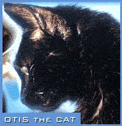For today’s edition of Talking Animals, I jettisoned the usual format and convened a panel discussion about the end of the Ringling Bros. circus. I was inspired to present the panel because I was struck by the array of reactions in the wake of the announcement by Feld Entertainment that it was shutting down the circus in May. As you might expect, longtime activists were thrilled by the news, but there were also great expressions of ambivalence, sadness, disappointment, nostalgia, and so on. And central questions hovered: What will become of the animals? What will become of the nearly 400 Ringling employees who will find themselves out of come work come May? There are other issues and concerns, and with the panelists I invited, I sought to represent at least some of the many perspectives I’d seen surface on social media and elsewhere. They were, in alphabetical order:
 Dr. Janet Davis: a professor at the University of Texas in Austin and historian, who’s done extensive research and writing about circuses (one of her books is The Circus Age: Culture And Society Under The American Big Top), and was in a position to offer a scholarly view of how the significant demise of Ringling can be placed within the history and evolution of circuses
Dr. Janet Davis: a professor at the University of Texas in Austin and historian, who’s done extensive research and writing about circuses (one of her books is The Circus Age: Culture And Society Under The American Big Top), and was in a position to offer a scholarly view of how the significant demise of Ringling can be placed within the history and evolution of circuses
Arin Greenwood: A non-practicing lawyer, former animal welfare editor at The Huffington Post and journalist who’s contributed to The Washington Post’s Animalia blog, The Dodo–and on social media had articulated a decidedly ambivalent, nuanced view of the Ringling news.
Stephen Payne: is the Vice-President of Corporate Communications at Feld Entertainment, and in that capacity, he’s served as the longtime spokesman for the Ringling Bros. circus.
Adam Sugalski: the executive director of OneProtest, the Florida-based advocacy organization known for its successful effort to help halt the Florida bear hunt, has long protested the Ringling circus—he did so days prior to the panel discussion, in Jacksonville, FL–and is thrilled about the news that the Ringling circus is ending.
We covered a great deal of ground, addressing topics ranging from the uncertainty over where the current Ringling animals will wind up, to the virtues and limitations of the Cirque de Soleil model, to the breeding and cancer research taking place at the 200-acre Center For Elephant Conservation in Polk City, Florida.
AUDIO ARCHIVE:
Listen Online Now:







